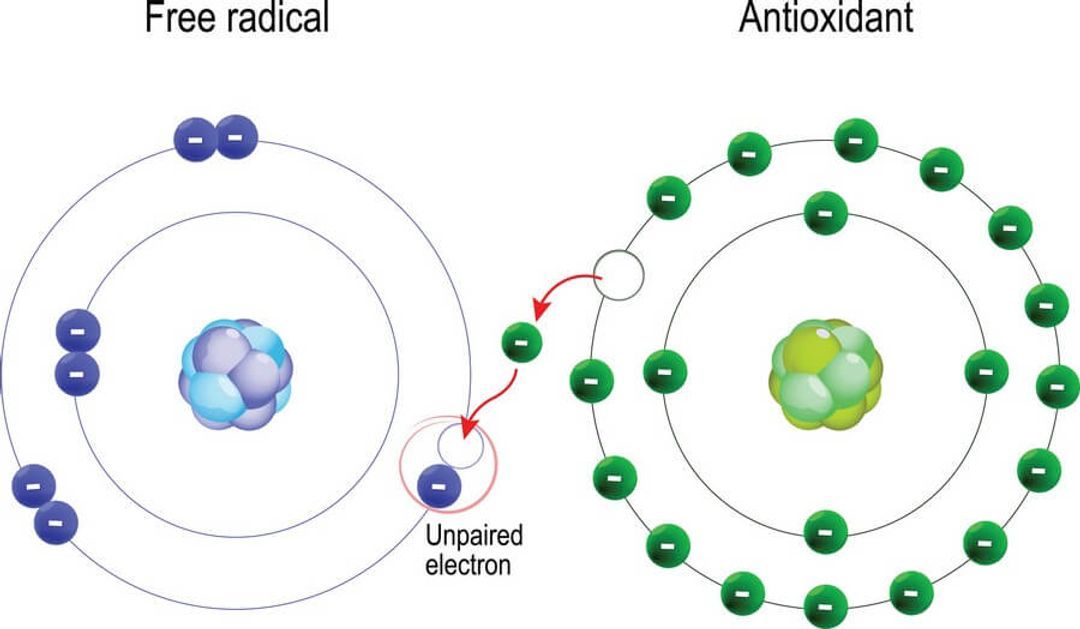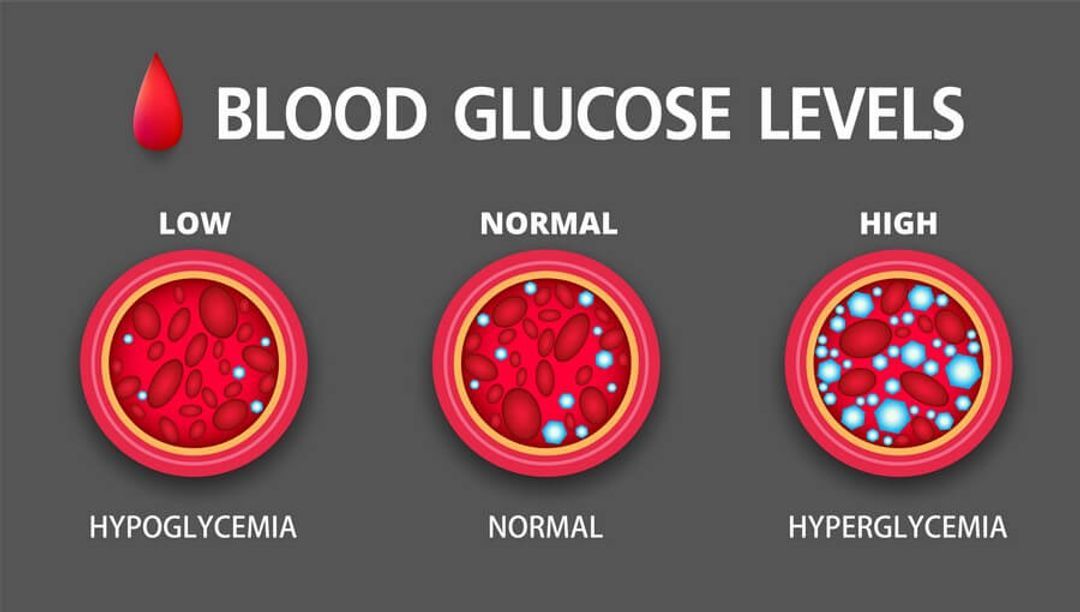20 Best Anti Inflammatory Supplements & Vitamins
Discover the list of 20 best anti-inflammatory supplements and vitamins to help fight inflammation. Take action for a healthier you! Learn more!
Chronic inflammation is the root cause of every major disease in the body, including dementia, diabetes, heart disease and cancer. Everything from stress, lack of sleep, smoking and diet can influence the progression and severity of inflammatory conditions within the body.
Because diet is one of the primary factors controlling inflammation, paying attention to what you eat and drink is important to help keep inflammation at bay. For many people, coffee is the first and most important drink of the day, but what effect does it have on health?
With chronic inflammatory diseases on the rise and coffee being one of the most commonly consumed beverages worldwide, it is important to understand its potential effects on inflammation.
Although coffee contains a rich array of beneficial disease-fighting compounds, research suggests that it can produce contradictory effects when it comes to inflammation.
Is coffee inflammatory or anti-inflammatory? This article uses scientific evidence to explore the complex relationship between coffee and inflammation to understand the connection.
Coffee contains a mix of over 1,000 bioactive compounds, including caffeine, diterpene, chlorogenic acid (CGA), cafestol, trigonelline and kahweol.
Research suggests these elements have powerful antioxidant and anti-inflammatory properties that can positively affect health.

These beneficial chemicals, collectively known as polyphenols, are also found in colourful fruits and vegetables. Polyphenols protect the body against free radicals, which can accumulate and cause damage to healthy cells, tissues, organs and DNA.
The compounds also appear to reduce inflammatory markers by influencing healthy gene expression and blocking the production of pro-inflammatory enzymes involved in their development.
Several studies have identified an association between regular and moderate coffee consumption and a lower risk of chronic diseases, including type 2 diabetes, chronic liver disease, heart disease, certain types of cancers, neurological conditions and other clinical manifestations of inflammation.
The following benefits can generally be experienced from drinking three to four cups of coffee per day; however, this dose can vary based on individual factors.
A 2015 clinical research study found that regular coffee drinkers had reduced inflammatory markers compared to those who didn’t drink coffee, specifically cytokines, C-reactive protein, TNF-alpha, chemokines and fibroblast growth factor (FGF-2) associated with inflammatory conditions.
 More specifically, the main compound found in coffee, CGA, has been credited with anti-inflammatory properties and improvements in metabolic and cardiovascular health.
More specifically, the main compound found in coffee, CGA, has been credited with anti-inflammatory properties and improvements in metabolic and cardiovascular health.
Another 2020 study found coffee beneficial for gut health, having antioxidant, anti-cancer and anti-inflammatory effects on the lining of the gut.
The higher the coffee intake, the greater the impact it appears to have in suppressing pro-inflammatory markers.
 Adiponectin is a hormone secreted by fat in the body, and it has anti-inflammatory effects that play a key role in protecting against insulin resistance. Evidence shows that moderate coffee drinkers have almost a 17% increase in this hormone than non-drinkers.
Adiponectin is a hormone secreted by fat in the body, and it has anti-inflammatory effects that play a key role in protecting against insulin resistance. Evidence shows that moderate coffee drinkers have almost a 17% increase in this hormone than non-drinkers.
Additionally, lower levels of leptin were detected in coffee drinkers, a hormone responsible for fat storage and appetite regulation, with high amounts linked to increased inflammation.
An imbalance in sex hormone levels increases the effects of chronic inflammation. Regular coffee consumption can increase testosterone levels in men and women, which has been shown to decrease pro-inflammatory cytokine proteins.
Coffee can also help flush out excess oestrogen, which has been linked to an array of health issues, including irregular and heavy periods, weight gain, fatigue, fibroids, polycystic ovaries and breast cancer.
Sex hormone binding globulin (SHBG) is a compound that binds to excess sex hormones circulating in the blood. Levels of this protein are also shown to increase in individuals who drink coffee.
High sugar intake increases blood sugar levels and is linked to increased inflammatory responses in the body. However, coffee has been shown to positively influence glucose control due to its regulation of the abovementioned hormones, adiponectin and leptin.
 In fact, one study suggests that drinking an extra cup of coffee per day decreases the risk of developing type 2 diabetes by 6%.
In fact, one study suggests that drinking an extra cup of coffee per day decreases the risk of developing type 2 diabetes by 6%.
C-peptide is a substance produced in the pancreas and is created when the hormone insulin is produced and released into the body. C-peptide and insulin elevate in line with blood sugar spikes.
High C-peptide levels usually indicate that the body is producing too much insulin. One large-scale research study found that coffee drinkers had almost 9% lower C-peptide levels than non-coffee drinkers, as well as lower levels of the hormone adenosine which is linked to an increased risk of developing type 2 diabetes.
Despite its anti-inflammatory properties, some evidence suggests that coffee can increase inflammation in some people. Individual factors are at play here, such as genetics, age, the concentration and dose of caffeine and the body’s metabolising processes.
Such inflammation can manifest in several forms, including infections, headaches, fatigue, pain, mood changes and digestive issues, to name a few.
Some ways coffee can contribute to inflammation include:
The research on coffee's anti-inflammatory effects is related to the substance in its raw and pure form, without additives such as sugar, artificial sweeteners, milk or cream. Such ingredients can counter the anti-inflammatory effects of coffee due to their high content of sugar, chemicals and saturated fats.
 With that said, some evidence suggests that even when it contains such additives in small amounts, coffee may still provide health benefits; its anti-inflammatory effects are more likely negated when such ingredients are added.
With that said, some evidence suggests that even when it contains such additives in small amounts, coffee may still provide health benefits; its anti-inflammatory effects are more likely negated when such ingredients are added.
Moreover, caffeinated soft drinks and energy drinks also contain other ingredients, such as artificial sweeteners, which can trigger an inflammatory response. For this reason, it is better to obtain caffeine through sources such as coffee, black tea or green tea to reduce inflammation.
One of the main components of coffee is caffeine, a drug that stimulates the stress response, releasing the hormone cortisol into the blood. While cortisol in small amounts can be anti-inflammatory, prolonged high levels can have the opposite effect.
 The amount of time it takes for caffeine to metabolise varies individually; while some people are able to process it within three to four hours, for others, it can take up to eight hours or more. The longer it takes for the body to process caffeine or the more sensitive an individual is to it, the worse the stress response can be, leading to symptoms of nervousness, anxiety, jitteriness and a racing heart.
The amount of time it takes for caffeine to metabolise varies individually; while some people are able to process it within three to four hours, for others, it can take up to eight hours or more. The longer it takes for the body to process caffeine or the more sensitive an individual is to it, the worse the stress response can be, leading to symptoms of nervousness, anxiety, jitteriness and a racing heart.
Moreover, caffeine triggers the release of neurohormones called catecholamines, which can exacerbate stress symptoms and lead to chronic inflammation in the long term.
Excess caffeine can increase insulin levels in the blood, leading to sugar and refined carbohydrate cravings, both of which exacerbate pro-inflammatory responses in the body.
While up to 400mg of caffeine daily is generally considered safe (four to five 8-ounce cups), elevated insulin secretion has been noted in people who consume around 150mg daily.
 Caffeine is a stimulant drug that can interfere with sleep, particularly in people with a slower metabolic rate or sensitivity to the substance. Good-quality sleep is essential for preserving optimal health, with sleep deprivation being linked to a significant increase in pro-inflammatory markers and alterations in the body’s stress response.
Caffeine is a stimulant drug that can interfere with sleep, particularly in people with a slower metabolic rate or sensitivity to the substance. Good-quality sleep is essential for preserving optimal health, with sleep deprivation being linked to a significant increase in pro-inflammatory markers and alterations in the body’s stress response.
Depending on the level of sensitivity and the amount of time it takes for your body to process it, it is recommended to stop drinking caffeine at least four to six hours before going to bed or eliminating it altogether to prevent it from interfering with sleep.
There is an overall consensus among experts that caffeine isn’t the primary compound that gives coffee its anti-inflammatory properties. In fact, one study found that caffeine supplements alone didn’t reduce inflammatory markers in participants.
 This study indicates that the polyphenols and other antioxidant compounds are solely responsible for reducing inflammation, or that caffeine is only effective in reducing inflammation when combined with coffee’s other compounds.
This study indicates that the polyphenols and other antioxidant compounds are solely responsible for reducing inflammation, or that caffeine is only effective in reducing inflammation when combined with coffee’s other compounds.
Based on this evidence, decaffeinated coffee may offer the same health benefits as regular coffee without the negative effects of caffeine; however, more research is needed to confirm this.
Additionally, even decaf contains trace amounts of caffeine (typically around 0 to 15mg per cup), which can be problematic for people who are particularly sensitive to the substance.
Research suggests that coffee consumed in moderate amounts can produce anti-inflammatory effects, owing to its rich composition of antioxidant and free radical-fighting compounds. Regular consumption can help to lower inflammatory markers associated with chronic conditions, including diabetes, heart disease and certain cancers.
With that said, bio-individual factors, such as age, genetics, caffeine concentration and sensitivity, can trigger pro-inflammatory pathways in the body. In such cases, it is recommended to reduce caffeine intake or eliminate it completely.
 The GlycanAge biological age test offers instructive insight into your current health state by assessing the extent of inflammation within the immune system. In doing so, the test can accurately predict your likelihood of developing chronic disease by determining your biological age (the age of cells within your body).
The GlycanAge biological age test offers instructive insight into your current health state by assessing the extent of inflammation within the immune system. In doing so, the test can accurately predict your likelihood of developing chronic disease by determining your biological age (the age of cells within your body).
This vital information can empower you to make the necessary lifestyle changes to effectively reduce your risk of chronic disease, increase your health span and delay ageing.
All it takes is a finger-prick blood test in the convenience of your home to learn your biological age. Results are available in as little as three weeks of mailing your sample to our lab.
Various packages and price plans are available depending on your budget and health goals. Every test you purchase comes with a complimentary 1-1 session with a scientist and/or healthcare professional to help you understand your result and receive tailored advice on how to increase your health span and delay the ageing process.
Invest in your health and order your GlycanAge home test kit today.
Due to their high antioxidant content, both tea and coffee are considered beneficial to health. Both beverages, when consumed in moderate amounts, are considered safe for people who can tolerate caffeine. However, those with caffeine sensitivity or who drink caffeine in high amounts should consider reducing their intake or eliminating it altogether.
Coffee in moderate amounts is considered healthy and can be incorporated into an anti-inflammatory diet. Around three to four cups of coffee per day (32-40 ounces) is considered a moderate amount. Anything higher than this amount can produce a pro-inflammatory effect and elevate stress levels.
People who are sensitive to caffeine or who take longer to metabolise it should decrease their consumption or avoid consuming it completely. Signs and symptoms of caffeine sensitivity include a racing heartbeat, headaches, jitters, nervousness and anxiety, restlessness and insomnia.
Up to 400mg of caffeine daily is generally considered safe, but if you are sensitive to caffeine, adjust your coffee intake accordingly.
Coffee can reduce inflammatory markers, regulate hormones and control blood sugar.

Start or continue your GlycanAge journey
Don’t be afraid to reach out to us and ask questions, provide commentary or suggest topics.
Other articles you may like:
Discover the list of 20 best anti-inflammatory supplements and vitamins to help fight inflammation. Take action for a healthier you! Learn more!
Can My DNAge accurately predict my biological age? Should I buy a My DNAge biological age kit? Keep reading for a comprehensive review of My DNAge home test kit.